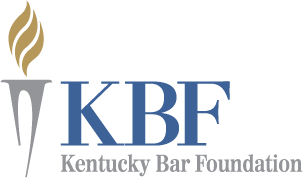Blog
Protecting Yourself on Social Media and the Internet
One of my favorite rock groups from the ‘90’s was PHISH. I always thought there might be some connection between “phishing” and that group. Unfortunately, there isn’t. Phishing developed on the internet from the propensity of some hackers to use the letters “ph” for the letter “f”. It applies to the concept of hackers “fishing” for individuals who drop their guard and accidentally provide passwords, account numbers, or other personal identifying information to scammers. It is estimated that 17.6 million people or roughly 7% of U.S. population age 16 or older have been victims of at least one incident of identity theft. This blog will focus on some of the more common phishing schemes that can trigger theft of your identity.
1. Celebrity Information:
A popular phishing ruse is to provide a famous person’s picture or embarrassing video. These types of scams will pop up if you do a search using that celebrity or popular person’s name. (Hulk Hogan’s recent trial is just one example of this type of internet search.) Hackers will rely upon your curiosity about movie stars, sports superstars, politicians, or others to encourage you to click on a link promising a scandalous video or some report that these individuals do not want you to see. Once you click on a link on a website like this, the link may ask you for your credit card information, user name, or a password. Be aware that this is a scam and any time you click on what purports to be a “free” link and you get asked for credit card information, immediately close that link.
2. Information from your credit card company or your bank that your account has been compromised:
Hackers have made great strides in duplicating web pages that look like a lot of commercial banks, PayPal, or other credit card or reporting agencies. These e-mails will advise you that purportedly your account has been comprised and you need to verify your information. The only give away will be a foreign e-mail address or one that matches most but not all of the real entity’s web address. Look at the e-mail address closely.
Generally, your credit card company will call you or your bank will notify you by mail or call you. Never open one of these e-mails and provide your account information. You are providing a hacker with that information on a fake website that looks very real. That hacker gets your user name, account number, and password, which can then be used to raid your account on the real website or be sold to another hacker. If you are concerned that an account has been compromised – call your bank or credit card promptly.
3. If it looks too good to be true, it probably is:
Frequently scammers or hackers will set up bogus social media pages that look like those of legitimate companies and offer either free or dirt cheap products or services or offer live streaming of a movie or sporting event. These may lure with a promise of a “free” discount card or a note that “you are getting this e-mail because of a registration” on another website. On these webpages, you may be tempted to follow the link in order to get a free meal or movie preview or to watch a popular sporting event. This is just phishing “bait”. Don’t let the hacker set the hook and reel you in.
Once you click on these websites, again, the scammer will seek to collect your name, address, phone numbers, e-mail addresses, and other personally identifiable information, which can be used for identity theft or be sold to other hackers on the black market or the “dark internet” so that your accounts can be raided. Accordingly, be cautious and remember that old adage that, “if it looks too good to be true, it probably is”.
Internet hacking schemes evolve and grow daily despite state and federal laws to prosecute hackers and protect innocent victims. Keep your computer’s security programs up to date. Protect your passwords and make sure they are strong. Remember to use good common sense and follow the advice that your mother gave you – there is no such thing as a free lunch; if it looks too good to be true, it probably is; and a new variant of that same advice, “just because you read it online, doesn’t mean it’s true”.
If you have other questions regarding identity theft or protecting yourself on the internet or fall victim to one of these scams, please contact our office.
Author: Gary J. Sergent, Esq.







